Introduction
Martial arts, a discipline that originated in Asia, has captivated people worldwide for centuries. While many see martial arts as a means of self-defense or a competitive sport, there is a deeper aspect to this ancient practice that often goes unnoticed – its connection to spirituality. In this blog post, we will explore the profound relationship between spirituality and martial arts and how this connection can positively impact individuals of all ages.
The Historical Roots of Martial Arts
To understand the connection between spirituality and martial arts, it is essential to delve into its historical roots. Martial arts, such as Kung Fu, Karate, and Taekwondo, originated in ancient Asia and were deeply influenced by the philosophies and spiritual practices of the region. These martial arts were not merely physical combat techniques but were also seen as a path to self-discovery and enlightenment.
The ancient Chinese martial art of Kung Fu, for example, was developed by Buddhist monks as a means to cultivate physical and mental discipline. The practice of Karate in Okinawa, Japan, was influenced by Zen Buddhism and emphasized the integration of mind, body, and spirit. Similarly, Taekwondo, originating in Korea, draws inspiration from Confucianism and Taoism, promoting harmony and balance in all aspects of life.
The Mind-Body Connection
An important principle of martial arts is the cultivation of the mind-body connection. Through rigorous training, practitioners learn to synchronize their physical movements with their mental focus and intention. This integration of mind and body allows individuals to develop heightened awareness, concentration, and control over their actions. By honing this connection, practitioners can enhance their overall well-being and performance in various aspects of life.
When practicing martial arts, individuals are encouraged to be fully present in the moment, focusing their attention on their breath, movements, and the energy within their bodies. This mindfulness cultivates a deep sense of self-awareness and helps individuals develop a greater understanding of their physical and mental capabilities. By harnessing the power of the mind-body connection, practitioners can improve their concentration, reduce stress, and achieve a flow state in their daily lives.
Discipline and Self-Control
Spirituality and martial arts share a common emphasis on discipline and self-control. Martial arts training requires individuals to adhere to strict codes of conduct, follow a structured routine, and maintain a high level of self-discipline. These qualities are not only essential for mastering martial arts techniques but also for personal growth and success in other areas of life. By practicing martial arts, individuals can cultivate discipline and self-control, which can positively influence their personal and professional endeavors.
The discipline instilled in martial arts training extends beyond the physical aspects of the practice. It encompasses mental discipline, emotional control, and ethical behavior. Practitioners learn to set goals, work diligently towards achieving them, and persevere in the face of challenges. These qualities of discipline and self-control can help individuals develop a strong work ethic, make responsible choices, and navigate the complexities of life with resilience.
Inner Peace and Emotional Balance
Martial arts training provides a sanctuary for individuals to find inner peace and emotional balance. The physical and mental challenges during training help practitioners develop resilience, patience, and the ability to remain calm under pressure. Through meditation and mindfulness practices often incorporated into martial arts training, individuals can learn to manage stress, control their emotions, and find a sense of peace amidst the chaos of daily life.
The practice of martial arts encourages individuals to cultivate a peaceful mind and a compassionate heart. By focusing on their breath and engaging in meditation, individuals can quiet their thoughts, release tension, and cultivate a sense of inner calm. This inner peace not only benefits their martial arts practice but also extends to their interactions with others. Practitioners can develop emotional intelligence, empathy, and the ability to handle conflicts with grace and equanimity.
Unity and Connection
Another significant aspect of spirituality in martial arts is the emphasis on unity and connection. Martial arts training fosters a sense of community and camaraderie among practitioners, creating a supportive environment for personal growth. Individuals who engage in martial arts can develop strong bonds with their fellow practitioners, learn to respect and appreciate diversity, and cultivate a sense of belonging.
In martial arts dojos and training centers, individuals come together to learn, practice, and support one another. They form a community that transcends age, gender, and cultural backgrounds. This sense of unity and connection helps individuals develop social skills, build self-confidence, and develop a positive self-image. The support and encouragement received from fellow practitioners and instructors can be invaluable on the journey of self-discovery and personal growth.
Conclusion
The connection between spirituality and martial arts runs deep, offering individuals of all ages a unique opportunity for personal growth and self-discovery. By embracing the mind-body connection, discipline, self-control, inner peace, and unity fostered by martial arts, individuals can enhance their overall well-being and navigate the challenges of life with grace and resilience. Whether it is finding inner peace, developing self-discipline, or forging meaningful connections, the practice of martial arts can be a transformative journey for those seeking to explore the deeper dimensions of their being.

